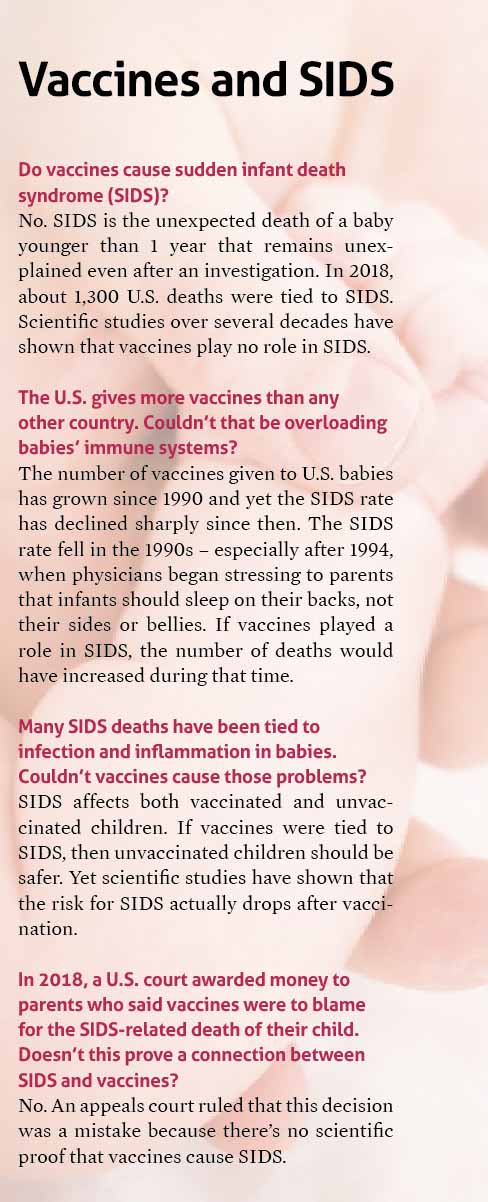There’s a long-standing myth that vaccines cause sudden infant death syndrome (SIDS), and that myth can be chalked up in part to bad timing, says San Antonio pediatrician Leah Jacobson, MD.
“SIDS is unexplained death under one year, but the majority of [those deaths] happen in the first six months,” she said. “And that’s also the time when most children are getting the majority of their vaccines.”
Over the years, several vaccines have been blamed for SIDS, including those for pertussis, tetanus, diphtheria, Hemophilus influenzae type B, polio, and hepatitis B.
This misconception has triggered a lot of scientific study to find out if vaccines could, in fact, cause SIDS. However, multiple studies and safety reviews have concluded that the answer is no, according to the Centers for Disease Control and Prevention (CDC).
“The evidence accumulated over many years do not show any links between childhood immunization and SIDS,” CDC says.
Any doubt about that should have been erased by developments in the 1990s and early 2000s.
First, the American Academy of Pediatrics (AAP) in 1994 launched the “Back to Sleep” campaign (now called “Safe to Sleep”) to help parents prevent SIDS. After that campaign took off, several new vaccines joined the CDC’s recommended schedule, including the ones for varicella, rotavirus, and hepatitis B. Yet the rate of U.S. SIDS deaths dropped from 116.72 per 100,000 live births in 1993 to 35.18 per 100,000 in 2018, according to CDC.
“If you’re giving children more vaccines and people are trying to use the correlation that you’re stressing out the babies’ systems [with too many vaccines], then you would expect that there would be an increase [in SIDS deaths],” Dr. Jacobson said.

Tex Med. 2020;117(2):43
February 2021
Texas Medicine Contents Texas Medicine Main Page